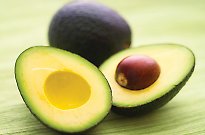
Detox for weight loss

Kellie Ashton explains the importance of a proper detox when losing weight and staying healthy.
Are you one of those people who have tried everything to lose weight but it just won’t budge? Sometimes your body holds on to that fat for a reason – your organs may need some TLC before it is able to rid the body of excess fat. The state of your digestive system may be preventing you from absorbing the required nutrients for optimal health and weight loss. For these reasons and many more, a thorough detoxification program is recommended for anyone who struggles to lose weight, even when they eat a balanced and wholesome diet.
When people hear the word ‘detox’, they automatically think about the liver. The liver is definitely a significant part of detoxification; however, it is not the only organ that is involved in a detoxification program.
The digestive tract
Our digestive tract is constantly exposed to an enormous amount of toxins and pathogens. The digestive tract is the first point of contact when we ingest something and acts as a barrier to undesirables – so a healthy gut is so important when it comes to detoxification. Our bodies produce enzymes that carry out their own detoxification routines in the digestive system. Through bad diet and lifestyle choices, the amount of these enzymes are decreased and the lining of our gut wall no longer serves as a strong barrier, leaving our liver and immune system to pick up the slack and, eventually, disease prevails.
The microflora in the gut also has an important role to play in our body’s detoxification processes. Pathogenic bacteria can inhibit the detoxification of our body by inhibiting absorption of important nutrients, releasing toxins into our system, and much more. These toxins are then stored in fat cells by the body. The longer these organisms are in our body, the more toxic exposure our body has to endure. During a proper detox, these pathogenic microorganisms are destroyed, flushed from the body and then replaced with beneficial bacteria through probiotic supplementation.
When we have an unhealthy digestive tract, we don’t absorb nutrients as well as we need to, which can lower our metabolism and will in turn cause weight gain.
The liver
When your liver isn’t functioning correctly, the elimination of fats, toxins and heavy metals is compromised.
The liver requires many nutrients to carry out detoxification effectively. These nutrients include protein, B vitamins, minerals and antioxidants and it is for this reason that a healthy, wholesome and clean diet is needed during a detox. Fasting for long periods of time is not advisable, as the body requires food for fuel as well as these vital nutrients in order to detoxify the body.
If your liver cannot metabolise fats properly, weight gain will usually occur, especially around the abdominal region.
The kidneys
Supporting kidney health is a vital part of any detoxification program. The kidneys are key organs responsible for blood filtration and the elimination of drugs and their metabolites as well as maintaining healthy pH levels within the blood and urine.
A common diet today contains very acidic foods, as we are surrounded by sugary fast food, alcohol and bad lifestyle choices. When our pH is thrown out of balance, it can cause cellular dysfunction and impair our ability to detoxify.
As well as helping us maintain our pH levels, the kidneys are an elimination organ and help us excrete chemicals and other toxic substances through urination. Drink plenty of water throughout your detox to aid the kidneys in doing their job effectively.
If your kidneys are not functioning properly, a build-up of fluid can occur and prevent weight loss, and even cause weight gain.
Stress & fatigue
It is becoming more apparent to us that stress and fatigue can cause weight gain. When our bodies experience stress, it reacts by releasing hormones such as cortisol. This is called the ‘fight or flight’ response. It is our body’s way of preparing us for danger. Cave men didn’t have full-time jobs, meetings, deadlines or financial worries. Instead, they had predators who wanted to devour them. This rise in hormones allowed them to either fight off their predator or run for their lives. After the danger had been averted, hormone levels would normalise.
Today, our stress is a different type of stress, but our hormonal reactions remain the same.
When this hormonal response is triggered, cortisol and other hormones break down fat into energy you need for a getaway or to fight off a predator. After the threat is dealt with, the fat is stored once more, usually in your abdominal region and appetite is increased to replace the energy lost during the stress. The appetite that follows usually comes in the form of cravings for sugary or fatty foods.
NEXT: Weed, seed & feed detox


